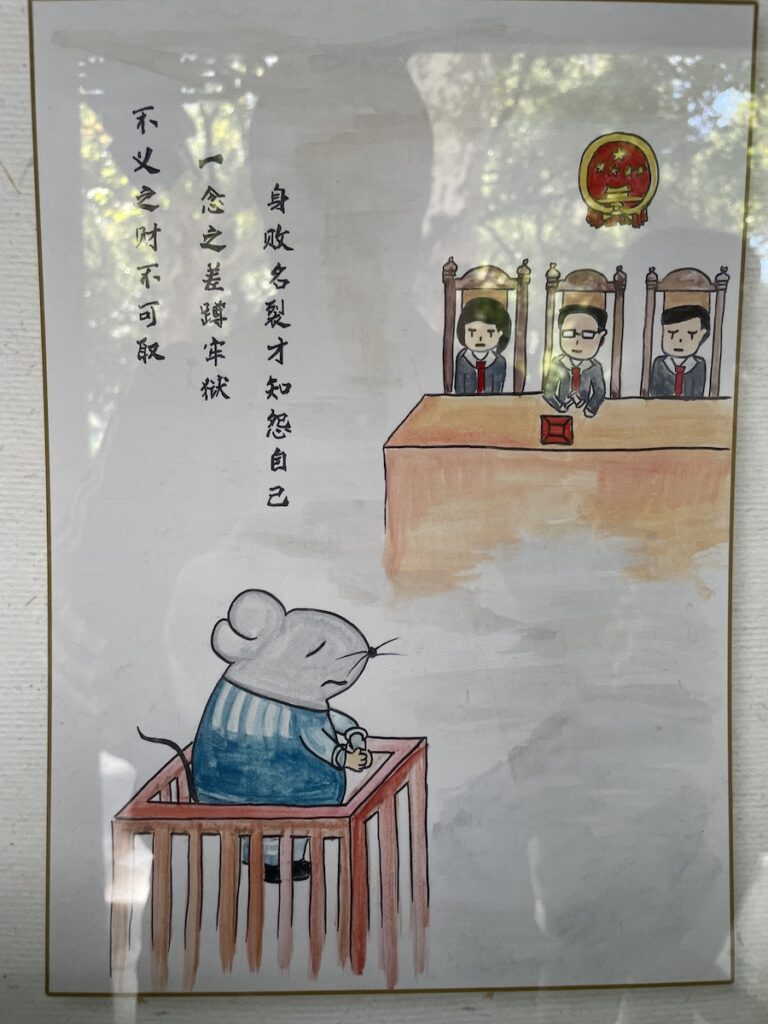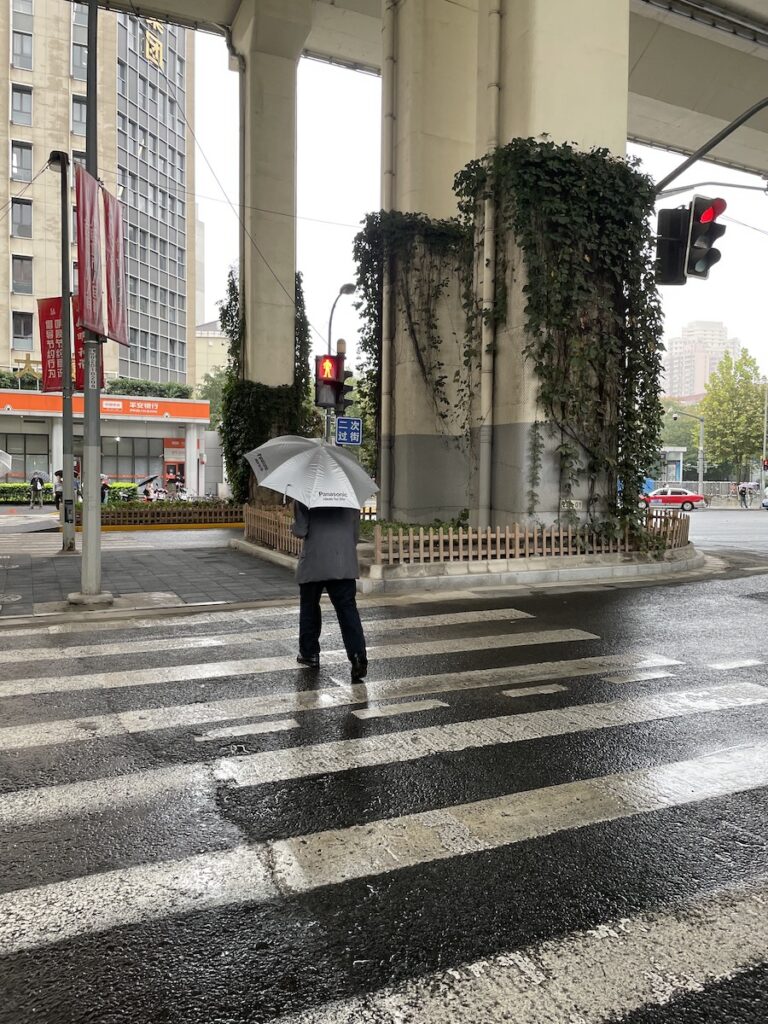China is a country of rule breakers. It’s a nation of criminals, scofflaws, delinquents, lawbreakers, and ne’er do wells who are constantly engaged in a convoluted game of cat and mouse with the authorities. This flagrant disregard for the rules and regulations was one of the biggest things that shocked me about China. Don’t believe me? Here’s some anecdotal evidence to prove it. Names have been changed to protect the guilty.
The Old Two Person Scooter Scam
The city of Shanghai probably has the most developed traffic regulations anywhere in China. Cars and scooters stop when they should, stay in their lanes and follow the correct direction of traffic. It makes getting around much nicer than, say, somewhere more rural like Yangshuo.

In the old-timey wild-west days of 2007, you could cram an entire family of three generations onto a single scooter in Shanghai. Mom, dad, baby, grandma, and even Auntie Sue would pile onto the aching back of a single electric scooter, cruising around through the city’s streets. Needless to say, it was dangerous.
At some point, Shanghai passed a law banning adult passengers on scooters. Children can, and do, legally cruise around helmetless with their parents. Adults are supposed to buy another scooter or take the bus. Traffic police posted at busy intersections enforce the law and write hefty tickets to any violators.
But did that stop the Chinese? Hell no. People still cruise around with multiple adults on one scooter. But now, when they approach an intersection with a traffic cop, they simply stop the scooter before passing through and let the passenger(s) get off. The driver cruises through the intersection, and the passengers cross on foot. Hopefully, to find their scooter driver waiting for them outside of the traffic cop’s field of vision.
Theft and Taxes
This penchant for delinquency doesn’t just extend to the local traffic police. Chinese people are constantly trying to rip off the federal government. Much like the American who suddenly finds twelve new dependents every April 14th, the Chinese don’t like paying their fair share of taxes either.

For a while, well-off Chinese would ship their income to offshore tax havens, such as North Dakota, USA. To prevent this (and possible devaluation of the currency) the government restricted the amount of money the Chinese can send overseas to $50,000 a year. And you better have a damn good reason for it.
The good news for people like me: that limit doesn’t apply to foreigners. We can send back as much as we want, provided we can prove we paid the proper taxes on the money. If you don’t have that proof… well, how much cash can you shove into a suitcase?
I know someone who spent three years working as an English teacher making 20,000 RMB a month. She had saved up a lot over the years, and when it came time to return home, she understandably wanted to shift that RMB to American dollars so she could spend it in the U.S. She went to her employer for the necessary tax proof only to find that they’d been reporting that she’d only been making 5,000 a month. Legally then, she could only legally transfer a tiny fraction of what she’d actually earned.
In the end, she used a combination of shady peer-to-peer currency exchanges, combined with a wad of cash stuffed in her fanny pack.
The Police Registration Incident
As we all know, breaking the law is fun and games until you get caught. Getting caught, at the very least, involves a very awkward visit to the police station. I know! It happened to me!

As you may or may not know, China has a law requiring everyone to register their residence with the police. This includes your living and traveling residence, and it’s required of both locals and foreigners. If you’re traveling, the hotel will do this for you no problem. Or they will say they can’t do it and you have to find somewhere else to stay. No big deal.
Airbnb’s are a whole other issue. When we first came to China, we found a lovely little Airbnb for a good price and stayed there for a month. I’d heard about the police registration rule and asked our hostess about it. She smiled and said, “oh don’t worry about that, you don’t need to register anything. That law doesn’t apply to you.”
Me, being fresh off the boat, figured she was a local and knew what she was talking about. In reality, she just didn’t want to have to pay taxes and didn’t want me to register to avoid attracting the notice of the government tax collectors.
Things were fine for a while until we got a knock on our door from someone asking to see our police registration form. Of course, we didn’t have them. She was very nice about it. She took down our information and left.
That afternoon, we got a call from the police telling us we needed to come down to the station right away.
Detained by the Chinese Police!
Maybe we could have ignored the police summons, but I figured voluntarily going to the station was much better than being led there in handcuffs. A young officer met us at the door. He couldn’t have been older than 19, and his uniform was at least two sizes too big. Sleeves dangled down over his hands as he gestured us to go into the main room.

An incredibly stern woman greeted us in English. We told her why we were there, and she gave us a big lecture on the importance of registering. We’d broken the law by waiting so long to do it and were criminally liable. We needed to learn to obey the laws. We were, of course, terrified. She told us to sit down and “wait while we decide your punishment.”
The room was the kind of cold cement square block. There was a row of plastic chairs along the wall, uncomfortable enough to remind you that you were in trouble. The 19-year-old in the oversized uniform sat at a wooden desk, drinking tea and watching soap operas on his phone. The stern woman shuffled papers and occasionally glared at us from behind her window. There was a big red metal door at the end of the room. I could hear an elderly woman crying on the other side.
We didn’t dare talk or look at our own phones, for fear of making things worse. The clock ticked second by second for over an hour.
Finally, the mysterious metal door opened, and a middle-aged man walked out. He was dressed in business casual attire, with the look of someone who was ready to go home after nearly finishing a full day’s paperwork. He asked us if we could read Chinese, and we said “no.”
The man grunted something to the stern woman, then set some papers under our noses and told us to sign them. I’m sure it was some sort of confession, but I had no idea what I was confessing to. I signed it anyway.
The man nodded, handed the papers to the woman, and told us: “Don’t do it again.”
Rules are Dead, People are Living
Needless to say, we’ve since made a point to register with the police in a timely manner ever since. And now, in Shanghai, you can register online and it takes maybe 15 minutes.

As much as the 17-year-old in me wants to be a cool law-breaking non-conformist, I feel much more comfortable obeying the law as much as I possibly can while living in a foreign country. Especially China. So, I will not be participating in the Chinese national sport of rule-breaking.
These are just a few small examples. Don’t get me started on the new education regulations that have just passed.
Even little things like jaywalking. People living in authoritarian China are much more willing to jaywalk than people living in free and democratic America. It’s weird.
Despite all the rule-breaking, though, China is still incredibly safe. I don’t want to give the impression that the law-breaking extends to theft or personal safety issues. Yes, people steal things here, but it’s rare. Delivery drivers regularly leave scooters full of packages unattended on the sidewalk, and nobody messes with them. This is also weird, considering how much Chinese people like breaking the rules.
There’s a saying that goes: “规定是死的, 人是活的” which roughly translates to “rules are dead, people are alive.” The government will make all the rules and regulations it pleases, and the people will follow them if it’s convenient for them. If not, the people always seem to find some way to Judas Priest that shit.

Need Train Tickets in China?
China’s high speed rail network is fast and efficient, but it’s difficult for non-Chinese citizens to get tickets. Fortunately, Trip.com makes buying train tickets as hassle free as traveling through China can possibly be. Click the link below to get your Chinese train tickets. If you buy your train tickets using the link, I’ll receive a small commission and you’ll feel good knowing you’ve helped out an independent blogger.

